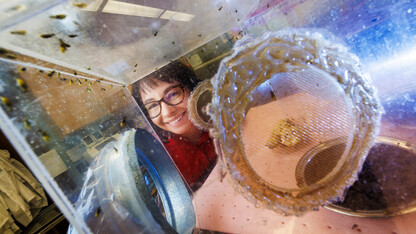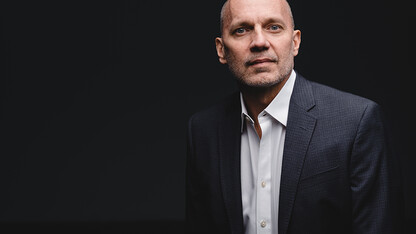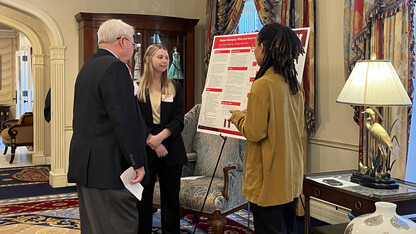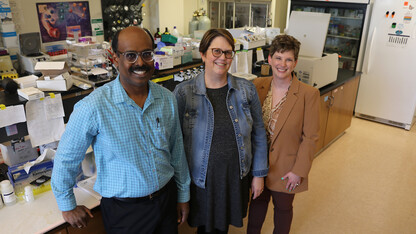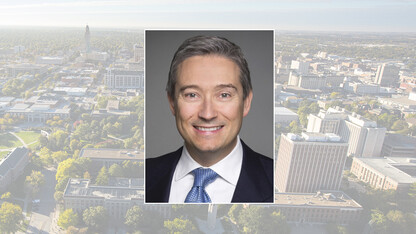· 5 min read
Chancellor outlines new proposals to strengthen campus climate
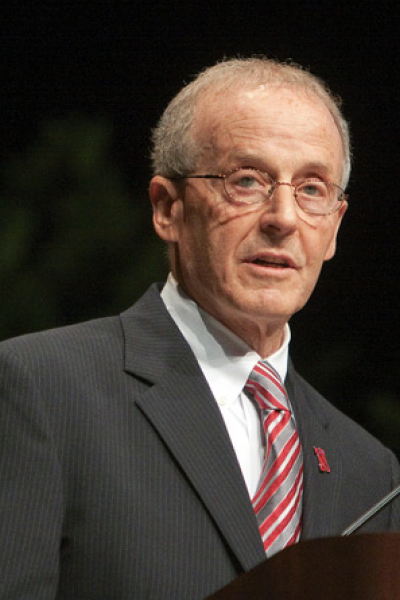
During the fall semester a few incidents suggesting racial bigotry or insensitivity occurred at UNL. These incidents were very unfortunate and very disappointing. They provoked an understandable response from students, faculty, and staff and demands for further efforts on the part of the university. The resulting conversation revolved around a broader set of concerns about perceived barriers to success for diverse students of all kinds and proposals for ameliorating those barriers.
An effort under the banner “Not Here, Not Now, Not Ever” was announced and several constructive sessions were held among members of the university community. Numerous ideas for action were discussed and the administration committed to formulating a plan for further discussion after return to classes in January. This document contains the administration’s proposals for the major steps the university might take as we continue to improve the climate on campus.
We do not regard the steps we propose here as the full extent of the university’s actions. All administrative units on campus are encouraged to consider and pursue their own ideas in addition to those proposed here. We remain open to further suggestions, either additional steps or revisions to the plans proposed here. But we intend to move forward in these directions while conversations within the campus continue.
The vice chancellor for student affairs will take the lead in implementing the following:
• Increase social and cultural activities on campus that promote interactions across student populations and increase participation by minority and international students. Particular emphasis should be working with student organizations such as ASUN, residence hall boards, college advisory boards, and Greek fraternities and sororities to assure the recruitment and engagement of diverse students.
The senior vice chancellor for academic affairs and the vice chancellor for the Institute of Agriculture and Natural Resources will take the lead in implementing the following:
• Create professional development materials and opportunities for faculty and staff to build expertise for engaging in and facilitating discussions about diversity in curricular and co-curricular settings, for addressing bias in the classroom and co-curricular activities and for incorporating the study of race, gender, ethnicity, nationhood, class, disability, sexuality, religion and their interactions in their curricula.
• Reemphasize the requirement that each academic unit should have a plan for increasing diversity within its membership and activities. Develop a clear incentive structure for rewarding units that successfully make progress in the recruitment and success of minority students, staff and faculty.
• Give priority in new-student orientation programs to educate all students on the relationship of diversity to academic excellence and to their future success in the world. The program should also address common examples of speech and conduct that may be regarded by others as insensitive or disrespectful of diverse members of the community.
The senior administrative team will take the lead in implementing the following:
• Adopt and promote a more robust and effective campus incident reporting system, to include incidents of bias, that assures an appropriate recording of and response to such reports.
• Consider an appropriate mechanism to bring greater transparency to the University efforts relating to diversity.
In addition to these steps, the administration will pursue opportunities to assure that the University’s efforts are consistent with the best practices of similar institutions. To that end we will compare our policies and activities with those of our peer institutions, either through research, campus visits, or inviting colleagues from other universities to visit Lincoln.
The units with responsibilities above will each report to the Senior Administrative Team not later than May 1 of each year outlining the activities undertaken, their perceived consequences, and their plans for the forthcoming year. These reports will be shared with the campus community.
Our primary objective — the same one that governs most of what we do here — is to assure that every student who enters the university has access to an academic program of excellence and a fair opportunity to succeed. Recruitment of diverse students, faculty, and staff is only the first step and must continue with greater intensity. Engaging with diversity by all students is a critical component of a high quality academic program. Addressing issues of race in thoughtful ways, both within and outside the classroom, enhances the educational opportunities for all students. Programs to increase the retention and graduation of all students are also critical. The proposals here are primarily addressed to steps we might take to highlight the exploration of diversity within our programs, to increase the awareness of issues surrounding race, and to enhance the success of diverse students and faculty. Most importantly, we hope to enhance the academic experience of all students so that they can better transition into the adult world.
This plan should be read in context. UNL has been successful in significantly increasing the diversity of the campus during the last few years. Our entering classes have been the most diverse in history, including both domestic and international students. In addition, numerous programs and activities have been implemented to celebrate and to support that diversity. While local incidents are always taken more personally, and are more painful, they do not necessarily imply that the climate at UNL is worse than that in other institutions or in society at large. Nonetheless this university can always improve and should take every reasonable and effective effort to do so.
The First Amendment protects speech against university sanctions, regardless of how offensive and we should recognize this as an important limitation on our response to specific incidents. It is our assumption that most of the incidents that occur are likely the product of insensitivity, ignorance, or the inherent initial human response to what is new or unfamiliar.
We are under no illusion that these programs will magically bring the university to a post-racial world. Our hope is that we advance toward that objective as effectively and as expeditiously as we can.
